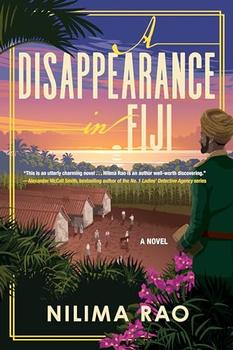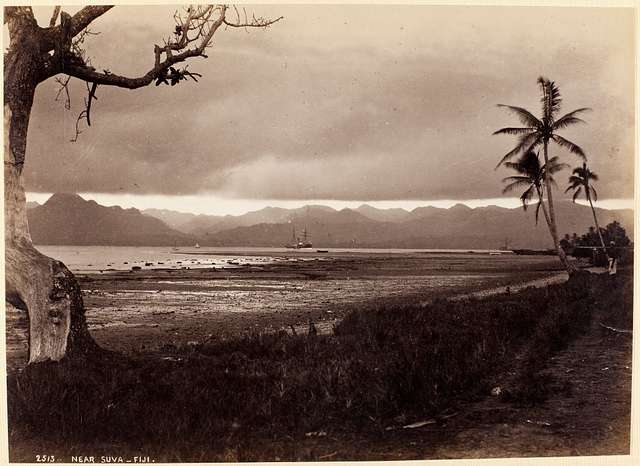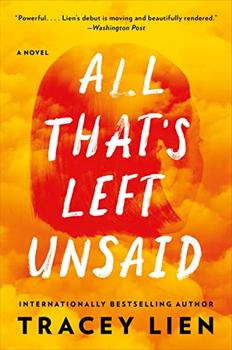Summary | Excerpt | Reading Guide | Reviews | Beyond the book | Read-Alikes | Genres & Themes | Author Bio

A charming and atmospheric debut mystery featuring a 25-year-old Indian police sergeant investigating a missing persons case in colonial Fiji
1914, Fiji: Akal Singh, 25, would rather be anywhere but this tropical paradise—or, as he calls it, "this godforsaken island." After a promising start to his police career in Hong Kong, Akal has been sent to Fiji as punishment for a humiliating professional mistake. Lonely and grumpy, Akal plods through his work and dreams of getting back to Hong Kong or his native India.
When an indentured Indian woman goes missing from a sugarcane plantation and Fiji's newspapers scream "kidnapping," the inspector-general reluctantly assigns Akal the case. Akal, eager to achieve redemption, agrees—but soon finds himself far more invested than he could have expected.
Now not only is he investigating a disappearance, but also confronting the brutal realities of the indentured workers' existence and the racism of the British colonizers in Fiji—along with his own thorny notions of personhood and caste. Early interrogations of the white plantation owners, Indian indentured laborers, and native Fijians yield only one conclusion: there is far more to this case than meets the eye.
Nilima Rao's sparkling debut mystery offers an unflinching look at the evils of colonialism, even as it brims with wit, vibrant characters, and fascinating historical detail.
Rao develops the mystery of Kunti's disappearance slowly, building up tension through the racist scorn Singh endures from the plantation owners, Henry and Susan Parkins, as well as his own biases. Singh is a soft-spoken observer in the uncomfortable exchanges Rao so realistically depicts. As he moves between the worlds of the planter aristocracy with its overt racism and the quiet, bleak despair of the workers, Singh senses that Kunti's disappearance may portend a darker reality on the Parkins plantation. The abuses of colonialism are on full display in the novel's depiction of indentured Indian women's experiences, which force Singh to grapple with the ripples of the system's evil...continued
Full Review
(650 words)
This review is available to non-members for a limited time. For full access,
become a member today.
(Reviewed by Peggy Kurkowski).
 The country and archipelago of Fiji is in the South Pacific Ocean, approximately 1,300 miles north of Auckland, New Zealand and 2700 miles southwest of Hawaii. It consists of more than 300 islands, about 100 of which are inhabited. The largest island, at approximately 66 miles long and 91 miles wide, is Viti Levu, or "Great Fiji." The country's capital of Suva—where part of the action takes place in Nilima Rao's novel A Disappearance in Fiji—is located on its southeast coast.
The country and archipelago of Fiji is in the South Pacific Ocean, approximately 1,300 miles north of Auckland, New Zealand and 2700 miles southwest of Hawaii. It consists of more than 300 islands, about 100 of which are inhabited. The largest island, at approximately 66 miles long and 91 miles wide, is Viti Levu, or "Great Fiji." The country's capital of Suva—where part of the action takes place in Nilima Rao's novel A Disappearance in Fiji—is located on its southeast coast.
At the time of the novel's events—1914—Fiji had been a British Crown Colony for 40 years. A conducive climate for such high-demand products as cotton, tea and sugar made it an initially attractive target for planters looking to raise cash...
This "beyond the book" feature is available to non-members for a limited time. Join today for full access.

If you liked A Disappearance in Fiji, try these:

by Tracey Lien
Published 2023
For fans of Everything I Never Told You and The Mothers, a deeply moving and unflinching debut following a young Vietnamese-Australian woman who returns home to her family in the wake of her brother's shocking murder, determined to discover what happened - a dramatic exploration of the intricate bonds and obligations of friendship, family, and ...

by Christina Baker Kline
Published 2021
The author of the #1 New York Times bestseller Orphan Train returns with an ambitious, emotionally resonant historical novel that captures the hardship, oppression, opportunity and hope of a trio of women's lives - two English convicts and an orphaned Aboriginal girl - in nineteenth-century Australia.
The worth of a book is to be measured by what you can carry away from it.
Click Here to find out who said this, as well as discovering other famous literary quotes!